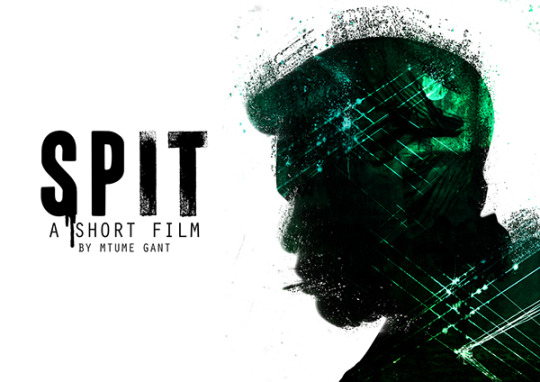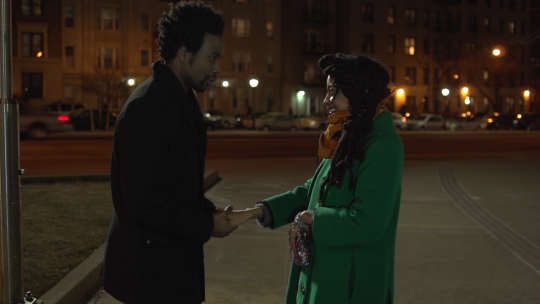NYFA CREATIVE CAREERS: HOW TO PRODUCE & FUND YOUR SHORT FILM
“As a content creator, you have a specific vision and finding a crew and collaborators that can help you bring that vision to life is key.”
Shooting a short film is a practice ground for emerging filmmakers. The creative process helps you hone your skills, build professional relationships and allows industry insiders to spot the next generation of screen talent. Ultimately, a well-made short film can garner positive media attention, film festival awards and even distribution. Yet before the stardom and accolades, you need to fund your endeavor. We spoke with emerging filmmakers, Mtume Gant and Rahwa Asmerom about their recent filmmaking experiences and provide an overview on how to successfully finance your first project.
Short films are the medium of choice to share your visual style and demonstrate your storytelling abilities. There are several prestigious short film showcases all over the country. From the Tribeca Film Festival to the AFI Fest, the industry is bustling and full of incredible talent. Short films often can elevate your creative profile and display originality.
Short films as a first step
In addition to being an art form in its own right, short films can allow filmmakers to test film ideas on a small scale first and protect you from over-investing too early in your career. Teach yourself the fundamentals and learn how to find the resources you need. You’ll learn important aspects of production, along with the associated costs of hiring a crew, renting equipment and editing footage on a smaller scale. The lessons learned will help you with future film projects. Before you begin ask yourself the following questions:
- Are you prepared for the duration?
- Why are you creating this project?
According to filmmaker Mtume Gant, making your short film is comparable to long distance running. It takes a fair amount of endurance and focus. His recent production, Spit, tells the story of a gifted artist who decides to give up on his creative passion because of external pressures. The film recently premiered at the New Voices in Black Cinema Festival at BAMCinematek and was selected for competition at the Aspen Shortsfest.

“Making films is not a race, it’s truly a marathon. From script to pre-production to actual production, to post-production and then to getting the actual piece screened and viewed by audiences. You will live with a film for a minimum of a year and a half, often it’s much longer, depending on the scale of your production. You should have an intimate connection to the material as well. The project should go beyond a clever idea. Your wit may get you over for a little bit, but if that wit is not connected to something greater you could find the process difficult and unfulfilling.”
Short films allow you to build your professional network
If you want to create a quality film, you need to identify talented professional actors and production crew members. Share your script and make your narrative compelling to potential collaborators. Offering incentives in the form of credits in the film and festival exposure are also important. These sort of benefits have the added value of establishing long-term working relationships.
Filmmaker and founder of blackSTORY Films, Rahwa Asmerom, screened her short Didn’t I Ask For Tea? at the Brooklyn Museum in March 2015. The film follows one woman’s pursuit of finding a new apartment in Crown Heights while dealing with a crumbling friendship, a dissolving romance and the stark realities of an increasingly expensive rental market. With this being Rahwa’s first film, the main challenges were mainly tied to financing. However, she found working with her directing partner Essence Ward and co-producer Jeremy Batchelor, essential to creating a phenomenal final product. She encourages new filmmakers to find their “tribe” on-screen and off.
“As a content creator, you have a specific vision and finding a crew and collaborators that can help you bring that vision to life is key. I have great collaborators now and I’ve met some really wonderful filmmakers at the Pan African Film Festival where we screened. They have similar sensibilities and aspirations for creating quality black film and I know I’ll be in touch with them for many years down the line. Ultimately, I think a big step in finding your tribe is just simply staying open to the possibility that you’ll meet who you’ll need to meet to make it happen.”

Create or connect with a community of creatives like yourself. Every filmmaker almost always has a story they may want to tell, though may not have all the pieces or time needed to execute. Make time to serve and support other artists when you can. It’s also good to make yourself available during your downtime, build with other filmmakers, or see if you can provide them with a service they may be missing. You can learn a lot that way.
There are several film service and membership organizations that can help you connect with emerging and established filmmakers:
- UnionDocs
- Downtown Community Television Center
- Global Film Initiative
- American Film Institute
- Chicago Filmmakers
- Philadelphia Independent Film and Video Association
- New Orleans Video Access Center
- Women In Film
Short films provide valuable exposure and film festival experience
Once you’ve completed your short film, it’s time to share it with the world. Rahwa notes the importance of sharing your short film as much as possible. “The film fest circuit is a critical resource for networking for short film writers and directors and I would recommend traveling as much as you feasibly can with your film in the year following its completion.”
Be diligent in submitting to film festivals and build awareness online about your project. Here are a few popular online platforms and festivals that artists should take advantage of:
Share your short film online:
Mtume also says: “Festivals have varied requirements for applications, use different screening and delivery services for their submissions…it’s a long process. Find the festivals that are right for your film. Yes, there are the big festivals like Sundance, Cannes and Clermont-Ferrand that you may apply to simply because of their caliber, but it’s finding those lesser known festivals that can expand your reach.”
Regional Film Festivals
- Green Mountain Film Festival, Vermont
- Florida Film Festival, Florida
- Heartland Film Festival, Indianapolis
- Chicago Underground Film Festival, Chicago
- Hollywood Film Festival, Los Angeles
- Independent Film Festival of Boston, Boston
- Rhode Island International Film Festival, Providence
Funding your short film
Construct a concise budget
Filmmakers have a tendency to focus entirely on their creative process. However, once your script is complete, developing your budget and exploring strategic methods of fundraising is vital. Even if the film is 7 minutes long, production costs quickly add up. You should have a realistic estimate of how much your film will cost from start to finish. Consider the following line items:
- Equipment
- Cast
- Locations
- Marketing
- Insurance
- Post-production
- Film festivals
Once you have a list of every element you need to deliver your film, determine how much each will cost, ideally with quotes from vendors and crew.
Know your budget intimately. It will be a constantly changing document. During your production you may barter for services or even receive a corporate sponsorship. A carefully managed budget will help ensure you don’t lose money in the long run.
Apply for artist grants
Grants are awarded for professional development and encourage artistic development. For aspiring filmmakers, grants can provide crucial financial support and at times, enable artists to conduct in-depth research. That said, grants are highly competitive and have strict stipulations, and application procedures. It’s all about eligibility. Some awards are available by nomination only. Whereas other grants may be on a rolling basis or have specific seasonal deadlines. They can also be privately funded or publicly funded. At times, opportunities are only available through are only available to filmmakers connected to a 501©(3) organization through fiscal sponsorship, which we discuss further below.
Prior to applying, it’s important to carefully research the funder and follow the proposal guidelines precisely. And make sure your work is a good fit for the application! For example, the National Endowment for the Humanities offers grants for independent filmmakers whose work addresses significant subjects in the humanities and reaches broad public audiences.
Popular Film Grants
- National Endowment for the Humanities – Media Projects: Production Grants
- The Jerome Foundation’s Film and Video Grant Program
Start a crowdfunding project
Crowdfunding is a fantastic fundraising tool for filmmakers, and the way it is used is still evolving. RocketHub, Kickstarter, and IndieGoGo, are both popular platforms where artists can post their projects and fundraise nationwide. The first step to crowdfunding is explaining your project and setting a fundraising goal for it. Share your unique story, how much funding you need to reach your goal, and why they should invest in your dream! Here’s an IndieGoGO example from Mtume’s short film, Spit.
Fiscal sponsorship
Some art service organizations, including NYFA, offer extensive fiscal sponsorship opportunities. Fiscal sponsorship is an agreement between an established 501©3 charity and an individual or organization who lacks their own tax exempt status but is interested in soliciting donations from others as well as seeking grants from foundations. Under this arrangement a tax-deductible contribution can be given using the sponsoring organization’s exempt status.
NYFA’s fiscal sponsorship application is free, and open to artists with a U.S. social security number, regardless of location. For filmmakers contemplating funding for their feature film, fiscal sponsorship is an excellent option. Director Elise DuRant completed her film, Eden, with the support of NYFA.
For anyone thinking about making a short film, securing funding for your premiere requires as much creativity and hard work as writing and directing it. Find your inspiration and discover the financial resources you need today using NYFA Source.
NYFA Source is a free directory of over 12,000 opportunities, awards, and services for individual artists nationwide. NYFA staff also offers individualized support to artists through the NYFA Source Hotline ([email protected] | 1-800-232-2789 3:00 PM – 5:00 PM EST Mon-Fri).
Let us know what careers you’d like to learn more about by visiting us on Twitter: @nyfacurrent and using the hashtag #NYFACreativeCareers
– Glory Edim, Program Associate, Online Resources
Homepage slider image: Pawel Wojtasik (Fellow in Video/Film ‘12), Below Sea Level, Documentation of an Installation, 2009. Article images from top: Andy Hay, Film screen in Piazza Maggiore, Bologna, 2013; Mtume Gant, artwork from Spit short film, 2015; Rahwa Asmerom, still from Didn’t I Ask for Tea? short film, 2015, photo credit: Tine DiLucia.





